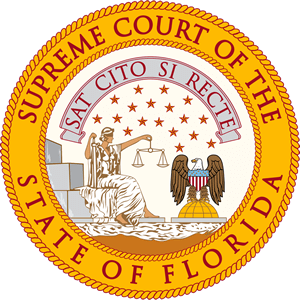
A United States consular officer will issue a visa after the USCIS approves a petition filed by a qualified family member.
Green Card
A Permanent Residence Card (Green Card) holder gives the individual the right to live and work in the United States on a permanent basis, The steps to obtaining a green card vary depending on whether you currently live in the United States or you are living outside the United States. The main categories for applying for a permanent residence (Green Card) card include: Green Card through family, employer, Self-Petition, Refugee or Asylee, green card lottery, born to a foreign US diplomat.
Naturalization Process Requirements are as follows:
- To be a permanent resident (EB-1, EB-2, or EB-3) for at least four years and nine months.
- Three months prior to your five-year mark of permanent residency, you may begin the naturalization application process. The time period for which your permanent residency is counted against the time necessary to become a U.S. citizen starts the day you gain permanent resident status, (listed on the Permanent Resident card).
- Compliance with the Permanent Residency Rule. Two conditions that define the permanent residency rule are:a) The applicant must be physically present within the United States for 30 months during the 5 years of permanent residency AND
b) The applicant may not leave the United States territory for more than 6 months at a time without a reasonable explanation
- Other requirements for naturalization include:
- Good moral character = no felonies
- Taking an oath loyalty oath to the United States
- Demonstrative ability to read, write, and speak English
- Knowledge of the history of the United States
- The resident alien may also apply for naturalization if they have been married to a U.S. citizen for at least three years.
- The petition process to determine if the foreign national is eligible to receive such residency could include an investigation into the individual’s history on subjects such as criminal arrests/convictions, diseases, unlawful presence issues.
Green Card through Family
In order to apply, you must be the immediate relative of a U.S. citizen, a member of a special category, or a family member of a green card holder. The following are the categories:
- Husband, wife, or child under the age of 21 (immediate relative);
- A parent, if the U.S. citizen is at least 21 years of age (immediate relative);
- An unmarried son or daughter 21 years or older and their children (first preference);
- Married son or daughter of any age and their children (third preference);
- Brother or sister if the U.S. citizen is at least 21 years old and his or her spouses and children (fourth preference)
A United States consular officer will issue a visa after the USCIS approves a petition filed by a qualified family member. After the petition is approved the visa may be issued in as little as 90 days or as long as 25 years depending upon which of the categories listed above apply and depending upon the immigrant’s home country. Please keep in mind that not all family relationships serve as a basis to apply for lawful permanent resident status.
Permanent Resident’s (Green Card holder) can file a Petition on Behalf of His/Her
- Husband or wife and children under the age of 21 (second preference A)
- Unmarried child 21 years or older (second preference B).
Green Card through your employer
A labor certification is completed by your employer, so that they can sponsor you by filing Form I-140. The basic claim is that an American citizen currently cannot be found to fill the position being offered.
Green Card through Self Petition
In some situations, you may be able to self-petition for a green card. This applies to certain professions such as:
- Afghan/Iraqi Translator
- Broadcaster
- Employee of an International Organization
- Religious worker
- Physician National Interest Waiver
- NATO-6 Non immigrant
- Employee of the Panama Canal
All of the above require a Form I-360, Petition for American, Widow(er), or Special Immigrant, and are described in Section 101(a) (27) of the Immigration and Nationality Act (INA).
Green Card through Investment of Business activity
B-1 Visa: B-1 visas can be utilized by individuals who are starting or determining the feasibility of a particular business. These individuals may conduct research, interview with future employees, partners and clients and conduct general business meetings. However, B-1 visa holders may not work in a specific business.
E-1 Visa: E-1 visas are used by people who desire to conduct a “significant” amount of trade with the U.S. The visa is reserved for individuals from countries that have signed a treaty with the U.S. regulating trade and commerce. The trade may consist of goods or services, including technology. These individuals must conduct at least 50 percent of its international trade between the U.S. and the treaty country. The trade may be coming from or going to the United States. For a list of the countries that the U.S. has E-1/E-2 treaties with, visit http://travel.state.gov/content/visas/en/fees/treaty.html.
Procedure to apply for investor’s visa E1/E2
This visa is referred to as the “entrepreneur” or “employment creation” immigrant visa by the immigration and nationality laws of the United States
The basic requirements for the investor to obtain conditional residence in the United States are:
- The amount now required to be invested is $500,000 in rural areas or in cities with a populace of 20,000 or more experiencing 1.5 times the national average rate of unemployment. In all other areas the investment required is $1,000,000.
- A legal source for all funds to be invested must be proven by documenting the source of such funds and specifically detailing how the funds were earned or otherwise obtained, not just documenting that the funds were drawn from a bank account in your name.
- For the investment to qualify the investor and the immediate family for conditional lawful permanent residence, it must result in the creation of at least ten new full time jobs in a business started or reorganized by the investor.
- If the investor purchases an existing business, he must increase the net worth of the business by forty percent (40%), or, increase the total number of full time jobs at the business by at least forty (40%) percent (but in no event less than ten new jobs).
- However, under a 1995 Immigrant Investor Pilot Program, if the required investment is made in a Designated Regional Center, the ten new jobs required to qualify may be “created indirectly“. If this is accomplished by the invested amount, the investor and his immediate family will be granted conditional residence.
- Processing time, once the application and required evidence is filed, is approximately four months for adjudication of the petition by the United States Citizenship and Immigration Services.
- Thereafter, the second phase, an application to be processed through the United States Consulate in the alien’s jurisdiction, usually takes an additional six months; or, if the alien is in the United States at that time (for example with a “B” visitor’s visa) then the alien can process the second part of the case through an Adjustment of Status application filed with the U.S. Citizenship and Immigration Services.
- The applicant’s spouse and children under age 21 may obtain derivative conditional lawful permanent resident status from the applicant’s investment and application
- If the qualifications continue to be met and the business remains viable, the conditional residence will be changed to permanent residence after two years. The investor and his family will then be eligible for United States citizenship three years later (five years after being granted the conditional residence).
E-2 Visa: E-2 visas are designed for entrepreneurs and professionals who intend to manage a business in United States. The individual must own at least 50 percent of the business or must demonstrate the work experience necessary to perform the job that a company is offering them. If the individual is investing in a company, they must be doing so with personal funds or a loan that they have secured. The business must also have the justifiable ability to maintain several U.S. employees.
The investor:
Must make a substantial investment in the United States whereby he will own at least fifty percent (50%) of an enterprise that is of benefit to persons other than the investor and his family.
- This is usually demonstrated by showing two or more full time employees; or, substantial payments to independent contractors on a regular and continuing basis for the investment to operate.
- The investment must be active; purchases of stocks, bonds, certificates of deposit or vacant land will not qualify.
- Development of land by subdividing and building on it will qualify, as will owning buildings that require management such as motels, apartment buildings or commercial buildings.
- There is, at this time, no minimum amount that must be invested to qualify
- For a list of the countries that the U.S. has E-1/E-2 treaties visit http://travel.state.gov/content/visas/en/fees/treaty.html
Student Visa Requirements F-1 visa or M-1 visa
There are tremendous educational opportunities in the United States for students across the globe. If you are planning to visit the United States to study at educational institution, you may apply for one of the following visas:
- Must attend a school or college full-time (8-12 units per semester)
- With the intent of earning a degree, you must attain an F-1 visa.
- Show proof that they have a tie to their home country that would make it likely that they would return, such as a job offer letter or proof of a bank account.
- Spouses and children of F-1 visa holders can obtain an F-2 visa.
- Must complete a non-immigrant application online (form DS-160), with your photo.
- You are required to schedule an interview with a U.S. embassy or consulate.
- You must also select the school you would like to attend and have that school register you in their Student and Exchange Visitor System (SEVIS) database.
- Must file Form I-20. You and your school will sign the I-20 form.
- Student Visa applicants must bring their passport, application fee, photo and forms DS-160 and I-20 to their interview.
M-1 Visa: If you are entering a vocational school, you must be a full-time students.
J-1 Visa: If you are going to be a part of an exchange program
Free Consultation Form
Certification




